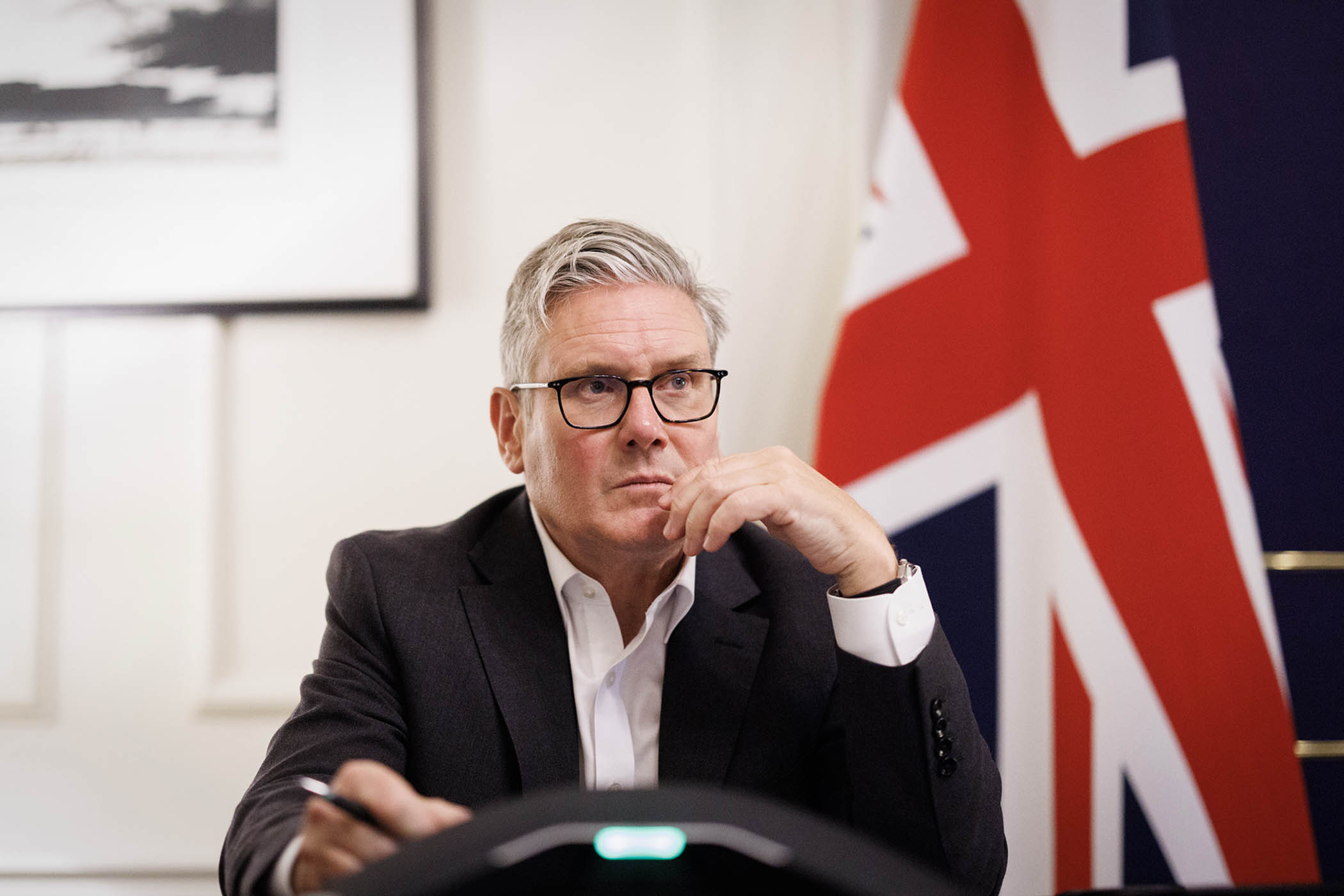This is the fourth article in a series. Read the others here.
There were not one but two effigies of Keir Starmer paraded through the streets of Lewes for its traditional 5 November bonfire night parade last week – a depressing first for a sitting prime minister.
The Treasury has got the message. In her unprecedented 8.10am address to the nation, the chancellor singled out the cost of living crisis not once but thrice, along with the NHS and lowering debt as priorities the British people wanted to see addressed. She would, she said, in a passage uncomfortably laden with Treasury-speak, “bear down on inflation and the cost of living. Inflation has been too slow to come down as supply chains continue to be volatile – meaning that the cost of everyday essentials remains too high.”
What does she actually mean? What has she in mind? And who will be the likely beneficiaries?
The inflation conundrum
Britain’s inflation rate reached a peak of 11.1% in October 2022 as world food and energy prices shot up in the wake of the Ukraine war, although it is now sharply lower at 3.8%. Still, even our peak inflation rate was higher than others, and today it is nearly twice the 2.1% in the eurozone and higher than the 3% in the US. Probe deeper and over the past four years prices overall have risen by 25% in Britain. Particular culprits have been food price inflation – up 38% – and energy prices – up 55%. We know why those prices rose, but not why they rose more and have fallen less quickly than elsewhere – and why, leaving them aside, the same is true of core inflation.
The chancellor’s oblique reference to supply chain volatility hints at the explanation. In essence, we can thank the excessive deindustrialisation of the 1980s which, by punching huge and expensive holes in our industrial capacity, forced British manufacturers to source the supply of key components abroad. Brexit then made one of the most important areas for that sourcing of supply more expensive again.
A technical paper in last autumn’s Bank of England quarterly bulletin – “A portrait of the UK’s global supply chain exposure” – spells out the degree to which the non-existence of key capacity has made British manufacturers rely more on inputs from other countries, particularly in the food and petrol refining sectors. A similar pattern exists in the service sector. In short, Britain has built an economy reliant on too many international middlemen. The relationships can be direct, indirect or simply through second-tier suppliers being forced to outsource abroad as well. And, as economist Brett Christophers explains in his book Rentier Capitalism, too much of the British economy is dominated by monopolistic companies that extract value rather than create it – and easily pass on any inflationary input costs from these global supply chains. What Reeves was trying to say is that 45 years of free market economics, embrace of globalisation and Brexit exposes Britain to proportionately more inflation.
Promoting affordability
The government cannot unwind all this in one year, let alone one parliament. To cap inflation and promote affordability for “working people”, its only short-term tool is to take on the costs itself, lower prices to the consumer and pay for the saving via higher taxes. Lower inflation enough and there will be a second reward:a pre-Christmas fillip via an interest rate cut. The Bank of England only narrowly forwent such a move last week because of ongoing concern about inflation by one vote: a strong cost of living package would seal the deal. Two measures – one on energy bills and the other on supermarkets – seem a racing certainty.
Energy bills are a flashpoint – 65% of polled respondents said they are the most important pressure on the cost of living. If the government took over the cost of a cluster of environmental measures – the Warm Homes Discount, the Energy Company Obligation, the Renewable Obligation and Feed-In tariff schemes while axing Carbon Price Support – energy bills could be cut by £160 a household and the inflation rate lowered by 0.3% for 27m households, estimates the Resolution Foundation, with the poorest helped the most. The chancellor could also cut the VAT on electricity to zero (leaving it at 5% on gas to promote greener electricity use) saving an additional £45 per household and lowering inflation by 0.1%. The trouble is the price tag: a cool £5.5bn for the energy measures and about £1.25bn for scrapping VAT on electricity.
Another likely option is excusing supermarkets from the proposed surcharge for firms operating on large premises with £500,000 rateable value or more. Supermarkets say they will be forced simply to pass on the cost to consumers. That is worth another 0.1% off the rate of inflation, but, again, a cost running into hundreds of millions.
A key part of the affordability crisis is fuel and transport costs. In September a third of all new car sales were electrical vehicles (EVs) that do not pay fuel duty. By introducing a 3p tax per mile driven for EVs, perhaps all cars, in 2028 the chancellor can shore up a revenue base from car use that is beginning to haemorrhage – and crucially justify freezing fuel duties again.
The chancellor’s aim must be to find enough cash to fund enough of these measures to lower inflation by at least a decisive 0.25% – so achieving the triple whammy of addressing the affordability crisis, getting the interest rate cut and further sweetening the bond market.
But the most direct impact of affordability is money in people’s pockets. The child poverty strategy is to be published in the same week as the budget, unavoidably bound to analyse the widely detested two-child cap on benefits. Reeves will not go for full abolition, but is set to offer a compromise, probably making it a three-child limit – cash that will go straight through to the pockets of families in the three lowest tenths of household incomes.
Winners and losers
The aim is to shield working people from the wide array of tax increases, keeping to the spirit of the manifesto if not the letter, while boosting affordability with a bias to the least advantaged – adults and children alike. But it is ever more apparent how much Brexit looms – in this case on inflation and the cost of living. An unpopular government needs a popular scapegoat. Expect Reeves and Starmer to turn up the tempo of attacks on Brexit: without it, the choices facing Britain would be less agonising and the gloom less pervasive.



